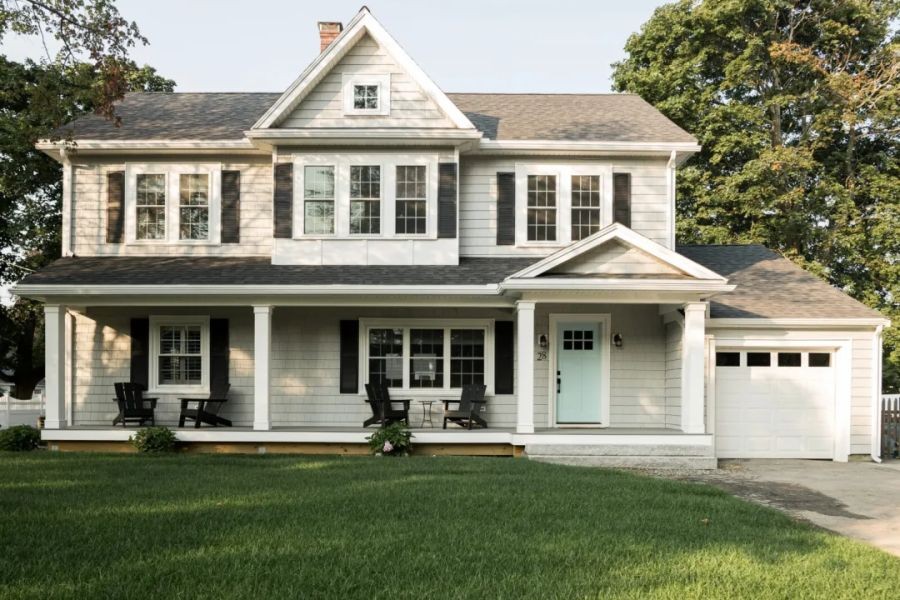In the realm of real estate investment, one perennial question arises for property owners looking to maximize their assets: should you add a second story or expand outward? This decision is particularly pertinent in New Zealand, where both land scarcity and housing demand are pressing issues. With urban centers like Auckland and Wellington experiencing significant growth, understanding the implications of each option is crucial for investors looking to optimize their property portfolios.
Pros and Cons: Adding a Second Story
Pros:
- Maximized Land Use: Building upwards allows you to make the most of limited land, especially in urban areas where land is at a premium.
- Enhanced Views: A second story can offer improved views, potentially increasing property value and attractiveness to buyers or renters.
- Preservation of Outdoor Space: By building up, you preserve yard space, which can be a significant selling point in New Zealand’s suburban areas.
Cons:
- Structural Challenges: Adding a second story can be complex, requiring structural reinforcement and potentially higher costs.
- Planning and Permits: This option often involves more rigorous planning and approval processes, which can be time-consuming.
- Disruption: Construction can be disruptive to current tenants, potentially leading to temporary vacancies.
According to Stats NZ, building consents for additions and alterations in residential properties increased by 12% in 2023, reflecting a growing trend towards maximizing existing properties in urban areas.
Pros and Cons: Expanding Outward
Pros:
- Simplicity: Expanding outward tends to be simpler structurally, often involving less complex engineering.
- Natural Light and Ventilation: Can improve natural light and airflow, enhancing the living environment.
- Flexibility in Design: Provides more options for layout and design, which can be tailored to specific needs.
Cons:
- Land Use: Requires more land, which might not be feasible in densely populated areas.
- Reduced Outdoor Space: May reduce garden or outdoor space, potentially decreasing appeal in suburban markets.
- Potential Zoning Restrictions: Zoning laws may limit the extent of outward expansion.
Data from the Ministry of Business, Innovation and Employment (MBIE) suggests that suburban expansions are more prevalent in regions like Canterbury, where land availability is less constrained compared to urban hubs.
Case Study: Auckland's Urban Expansion
In Auckland, the decision to build up or out is particularly significant. A local developer, GreenBuild NZ, faced this choice in 2022 for a property in a high-demand suburb. The initial challenge was maximizing ROI while adhering to local zoning laws and environmental considerations.
Problem: GreenBuild NZ needed to enhance property value in a land-scarce area with strict zoning regulations.
Action: They opted for a vertical expansion, adding a second story that included sustainable features such as solar panels and rainwater harvesting systems.
Result: Within a year, the property's value increased by 35%, with rental yields rising by 20% due to the enhanced amenities and modern design. This case underscores the potential benefits of vertical expansion in urban environments.
Common Myths and Mistakes
Myth: "Building up is always cheaper than expanding out." Reality: Depending on the existing structure and required reinforcements, adding a second story can be more costly than a lateral expansion.
Myth: "Outward expansion doesn’t affect property value as much as adding a story." Reality: In suburban areas, increased ground-level space can significantly enhance property value, especially if it adds functional living areas.
Mistake: Failing to consider long-term market trends and potential zoning changes can limit future flexibility and profitability.
Future Trends and Predictions
As New Zealand continues to grapple with housing shortages, the push for more efficient use of existing land is expected to intensify. By 2028, it is projected that over 50% of urban property developments will involve vertical expansion due to regulatory incentives and technological advancements in construction.
Conclusion
For investors in New Zealand, the choice between adding a second story or expanding outward involves careful consideration of numerous factors, including structural feasibility, regulatory environment, and market trends. Both options offer unique advantages and challenges, and the best choice often depends on specific property circumstances and long-term investment goals.
Final Takeaway: Evaluate the local market and regulatory landscape thoroughly before making a decision. Consider consulting with real estate experts to understand potential future trends and optimize your investment strategy.
If you have experience with property expansion in New Zealand, share your insights and stories in the comments below!
Related Search Queries
- Adding a second story in New Zealand
- Costs of expanding outward NZ
- New Zealand property investment strategies
- Urban development trends in NZ
- Building consent requirements NZ
People Also Ask
How does expanding outward impact property value in New Zealand? Expanding outward can significantly increase property value, particularly in suburban areas, by enhancing living space and functionality.
What are the biggest misconceptions about adding a second story? One common myth is that it's always cheaper than expanding outward, but structural complexities can make it more expensive.

































SandraLack
10 months ago